#book review
Explore tagged Tumblr posts
Text
I do believe we determined at some point that Sandry was chaotic lawful.
fun thing about herding and/or generally neurotic breeds: they are really good at following rules you have instituted, but they will also make their own Dog Rules they will follow stringently whether or not you like it
81K notes
·
View notes
Text


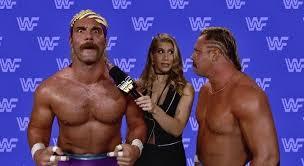

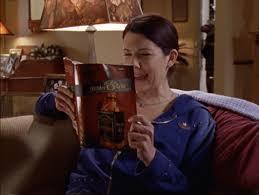

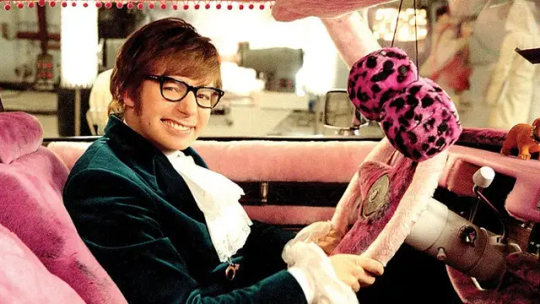
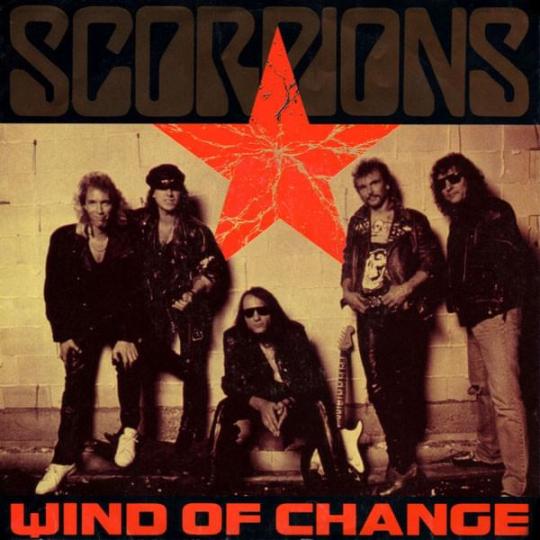
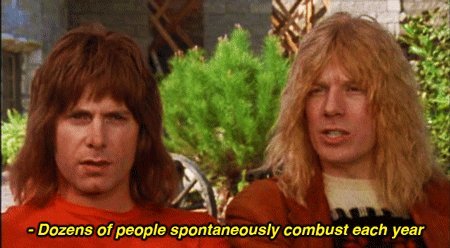
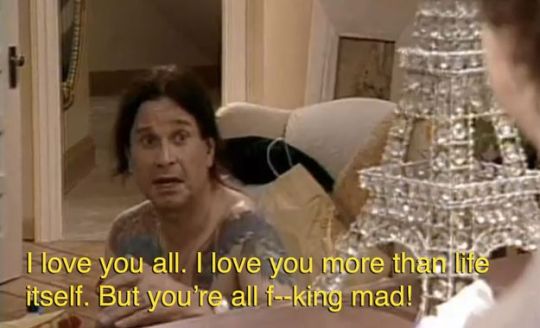
These are the vibes I THE WHYTE PYTHON WORLD TOUR brings to the function bookshelf.
It's Spinal Tap meets Austin Powers.
It's an 80s themed wrestling duo alarming the interviewer.
It's Lorelei Gilmore Reading THE DIRT.
It's Ozzy Osbourne on reality TV.
It's "The Wind of Change" being used as a political battle cry.
Get ready for the world tour...
#fiction#books#whyte python world tour#reading#spinal tap#austin powers#the vibe i bring to the function#carl hiaasen#satire#humor#comedy#book review
248 notes
·
View notes
Text
I'm Batshit Fucking Insane About Yield Under Great Persuasion By Alexandra Rowland And You Should Be Too

Rowland must have stalked me or something, because this book was everything I could have wished for and more.
A horrible gremlin who's also a sad little meow meow for a main character? Check.
Yearning? World Building? Whimsy? Sexiness? Divine intervention in growing the biggest phallic vegetable in history? Check!
The word cock in the opening paragraph? MOTHERFUCKING CHECK
Okay, okay, I've taken a little break from writing this, because the urge to keysmash was growing very strong indeed. I think the energy drink has mostly worn off now, so here's the less feral part of the review:
Yield Under Great Persuasion is an achingly tender book.
Its main theme is allowing happiness into your life even if it makes you vulnerable. It's protrayed with an exceeding gentleness and subtlety, yes even in the parts were an actual mother goddess shows up to tell the main character, Tam, to knock it off.
Tam has been awful to his on and off lover Lyford for years now, ostensibly over a childhood accident, but really because Tam is too much of a cynic to allow himself to be loved. His quest for forgiveness and to overcome his bitterness is both realistic and deeply meaningful.
Rowland's incredible sense of humour and daring to be delightfully weird is the cherry on top of a story I devoured in about six hours.
Run, don't walk, to read this book.
@ariaste
#book rec#cozy fantasy#yield under great persuasion#alexandra rowland#queer fantasy#queer romance#lgbt fantasy#lgbt romance#book recommendations#book review
67 notes
·
View notes
Text
5 SECOND REVIEW

55 notes
·
View notes
Note
I really want you to get started on Jurassic Park now after reading your tags.
All right, you asked for it! This post is going to be long because I've been rereading Jurassic Park since I was about 10 years old. But. My thoughts:
Jurassic Park is the oldest story in the world: one about hubris, and the price men pay for their pride. From the first moment the protagonists step foot on the island, they can see it. There are poisonous plants next to the pool because they "look pretty." The harbor has no retaining wall because tropical storms aren't considered important. It's a story where you respect nature, or you die. Wu doesn't bother to learn the dinosaurs' names before breeding them, Nedry ignores them as unprogrammable, Malcolm mansplains them to their own creators, Regis laughs at the idea of them escaping, Hammond relentlessly monetizes them, Arnold insists he can control them... And they all get eaten by dinosaurs. It's the characters with the good sense to be overawed and scared (Muldoon, Gennaro, the paleontologists, the kids) who make it out alive. Almost paradigm.
More specifically, it's a book about the most fundamental principle of engineering: be scared, be confused, and then do something anyway. Then do something else, then something else, until something works. Timmy isn't a master hacker in the book; he's just (unlike Grant) willing to push buttons on the computer until he finds the power grid. Gennaro's still a scaredy cat in the book, but he clenches his teeth and goes into the velociraptor nest anyway. The heroic characters are the ones who conclude someone has to do something, despite not knowing what that something is. The villainous ones are the ones who refuse responsibility.
Speaking of which, can we talk about Ian Malcolm? I'm a sucker for a good Cassandra character, especially one that manages to get even the genre-savvy reader rolling their eyes and going "will you shut up?" And Malcolm is one of the best, every off-putting academic habit rolled into one: He thinks he's better than other people for not liking sports. He brags about not caring about appearances and then comments on Sattler's legs. He assumes Hammond has read his monograph and — when Hammond reveals he hasn't — pulls out a copy that he keeps on his person at all times to have Hammond read on the plane. He smugly explains that other characters should've foreseen they'd be killed by dinosaurs, only to be killed by dinosaurs. He calls his theory the Malcolm Effect. I do love Jeff Goldblum's gentler, more charming take on the character ("See, here, now I'm sitting by myself, talking to myself, that's chaos theory" I say literally every time I ask a question of someone who just left the room). But I prefer the way original Malcolm gets away with being right about everything because we so so badly want him to be wrong.
Speaking of that comment about the legs: by the low low bar of 80s/90s thriller writers, Crichton is surprisingly progressive. Jurassic Park invites us to laugh with (and roll our eyes with) Sattler, every time someone expresses shock the world's top paleobotanist is a woman. The Lost World perfectly captures the "women in STEM have to be twice as competent to get half the respect" dynamic, and it's a story about the male characters over-estimating their own competence as the female ones go about saving the day. Race isn't handled perfectly, but it is discussed in both books. Malcolm's chauvinism is designed to make everything else he says a bitter pill, to poison us against him. Crichton's no feminist. But Sattler's hardiness — later Harding's and Kelly's as well — are shown as hard-won in a world that batters nerdy girls so hard that only the toughest survive.
And Malcolm is just one of the many ways Jurassic Park masterfully lampoons scientific bullshit. After little Tina is bitten by a "strange lizard" and nearly dies from the swelling, Dr. Cruz assures her parents that lizards bite zookeepers all the time, that some people are allergic to lizard venom, and that the lizard Tina drew resembles a basilisk — and then we cut to him talking to his fellow MD. Where we find out that lizards don't attack humans in the wild, no human they know of has ever been hospitalized for a lizard bite, basilisks aren't venomous, and Tina's condition doesn't resemble an allergic reaction. They have no idea what this "lizard" (a Procompsognathus) could be or how it poisoned this kid, but they've been taught to obfuscate rather than admit that. Scientists are arrogant, and ignorant of their ignorance.
But the book is every bit as positive about empiricism as it is negative about individual scientists. The seamless way Crichton blends science fiction with science fact gets me every time. His preface connects Watson & Crick to Swanson & Boyer to Malcolm & Levine, explaining each step of the research process as he goes. He goes on to explain how Genetech developed its ideas from IBM, and that IBM and Genetech both contributed to InGen, which in turn influenced Biosyn, funded by Hamaguri... and only two of those names are fictional, but don't worry about which. Crichton does his homework, and then he presents his homework in the most compelling way of any writer I've ever encountered.
You need no further proof than the technologies — satellite phones, electric cars, touchscreens, gene editing — that were sci fi in 1990, commonplace today. Crichton did the reading. And he rolls that science out ever-so-slowly: dribbling first the mystery of the worker with a 3-foot gash in his torso who claims a bird of prey did it, then the mystery of the resort that needs the world's most powerful data storage, then the mystery of the billionaire who calls in the middle of the night with "urgent" questions about what baby dinosaurs eat... Until even 10-year-old me could look at that picture of a fractal and go "ohhh, I see how the unstable phase shifts of chaos theory explain the fact that a thunderstorm caused that guy to get eaten by a T. rex." Almost paradigm.
And all Jurassic Park's banging on about chaos theory belies a deep understanding of how interconnected ecosystems are. Animals, like plants, like subatomic particles, must be understood holistically. Pretending that the best way to learn the truth of any system is through breaking it down "is like saying scrambled eggs and bacon for breakfast is human nature. It's nothing of the sort. It's uniquely Western training." Crichton clearly loves biology: "a single fertilized egg has a 100,000 genes, which act in a coordinated way, switching on and off at specific times, to transform that single cell... A house is simple in comparison. But even so, workmen build the stairs wrong, they put the sink in backward, the tile man doesn't show up when he's supposed to. All kinds of things go wrong. And yet the fly that lands on the workman's lunch is perfect." And he clearly hates what capitalism has done to biotechnology.
Hammond the venture capitalist is a perfectly despicable villain: No dinosaurs have escaped, because I said so. If there are problems, no there aren't. Put on a good show for investors, no matter how many contractors die in the process. Talk about all the "good" the park will do by making tons of money. The kids are stranded and the tech expert's dead? No they're not, because I said so, now pass the ice cream. It's truly a delight watching him get eaten by dinosaurs.
For that matter, Jurassic Park is bursting with details of style over substance. There are cutesy Apatosaurus cutouts in the hotel rooms and bars on the widows, a half-finished restaurant covered in Pterosaur poop, and a celebrity-narrated tour track that can't synchronize with the dinosaurs. It's trying to be Disney World, and it's actually a roadside zoo. The signage — "When Dinosaurs Ruled the Earth," the hand-lettered "Welcome to Jurassic Park", the room (and department) called "Control" — isn't subtle in its irony. But it is fun.
Which is yet another great sci fi trick. "Our funding is infinite but our peer review sucks" perfectly sets up the blend of the accurate with the plot-fueling (likely why Crichton reuses it several times). Why are there Pterosaurs in a dinosaur park? Our funding is infinite but our peer review sucks. Why are so many Cretaceous dinosaurs in Jurassic Park? Our funding is infinite but our peer review sucks. You didn't know Dilophosaurus is venomous? Our funding is infinite... It's perfect, because it's the opposite of how the scientific process usually works. Again: Crichton knows his shit, and he knows how to communicate it.
Like, even when I'm reading Sphere or Terminal Man — books where I'm perfectly aware I know more than Crichton on the subject, not in the least because their science inevitably became outdated — I still find myself believing, at least for the length of the story. You don't have to suspend disbelief when reading Crichton's work; he hoists it into the stratosphere for you. Half the time he won't give it back even after you're done. Almost paradigm.
But despite all that nerdery, Jurassic Park is still a rocking adventure story that builds momentum until it smashes to its conclusion at 70 miles an hour, ending the millisecond it can do so with not a word of denouement. You can practically hear that last deep piano note on the final words. It's cinematic as hell. This is Crichton post-Westworld, pre-Twister, the ultimate adventure writer. He reads, clearly, avoiding the errors of sci fi amateurs who watch too many movies (the T. rex has a distinctive smell, the island is relentlessly humid, so on) but he knows how to make a tight fast-moving story that you can consume in under three hours. His imagery is powerful, his pacing is on point, and his plot sucks you in and shoots you out like a water slide.
Jurassic Park is fun. It's informative. It makes you laugh, and gasp, and sigh, and think. It has its flaws (Harding Sr. fades out in the 3rd act, Grant's Maiasaura expertise never pays off) but those are minor in a book that stands up so well to rerereading. Almost paradigm.
#jurassic park#long post#michael crichton#science fiction#book review#jurassic park review#sci fi#i am so normal about this book#e.g. the time in 7th grade i wrote an angry email to sparknotes.com explaining to them that their summary over-identified the parallelism#between timmy holding the baby velociraptor and tina holding the 'lizard' because sattler CLEARLY STATES in iteration 1 section 4#that the animal that attacked tina is a procompsognathus
38 notes
·
View notes
Text
2025 Book Review #4 – Gardens of the Moon by Steven Erikson
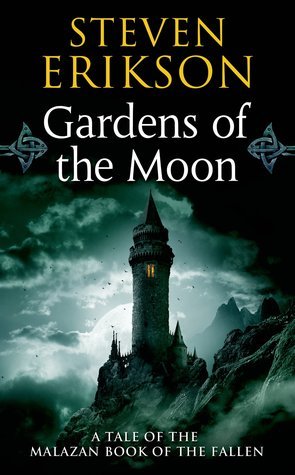
In the time between first hearing about Malazan and finally reading this, I have seen its reputation peak as The Only Fantasy Series anyone online recommended (long since dethroned by Sanderson), get submerged in the backlash, and finally just seem to fade from discourse entirely. In that time, I have been relentlessly peer-pressured and bullied (affectionate) into giving this ten-book saga a chance. And so, as a project for 2025, I will be endeavouring to get through it. Gardens, if it doesn’t live up to the hype (an impossible ask, really), is at least a very entertaining and engaging piece of sprawling epic fantasy to start it off.
Set in a sprawling, ancient fantasy world Gardens of the Moon is (to generalize and simplify) about the attempts of the Malzan Empire to conquer Darujhistan, last and greatest of the Free Cities, before the simmering discontent among its inner provinces and much-abused legions erupts into full scale rebellion. It is also about the various gods and immortals involving themselves in those attempts, most obviously the immortal (basically) elven sorcerer-lord Anomander Rake and his private war against the empire, but also including between at least two entirely unrelated sets of ascendant demigods and their schemes. The story is told through a whole myriad of different points of view, at least half of whom are fighting for the position of ‘main character’ in the narrative structure.
This is very much Map Fantasy, both literally (there are in fact maps and lexicons included in my copy) and figuratively – which is to say, in both tone and the tropes its drawing upon this is very much Epic High Fantasy in the Tolkeinesque tradition. It is, I’m told, actually based in some way on the author’s D&D campaigns – and if I hadn’t been told, I would have guessed. I cannot remember the last time I read a story where the setting and Lore so obviously preceded and is considered by the author to be as or more important than the particular narrative currently being told with it. Very nearly every single character, setting and concept that’s introduced feels like it’s being re-introduced, having already been the centre of a whole story in their own right in some other book. Which does an excellent job of making the world really feel like it has history, but does also just start to get exhausting at a certain point, and makes keeping track of the actual stakes more than a little difficult.
I want to say I came into this story blind, but that’s not really correct – I knew nothing at all about the story, but I’ve had a friend telling my little tidbits about the lore and metaphysics for years now. This was probably incredibly helpful for my reading experience – even compared to the rest of the genre, this is a story absolutely in love with Proper Nouns, even for fairly traditional fantasy concepts and tropes. If you just go with the flow and let them wash over you until the context clues start piling up I think you’ll probably do okay? But I can’t lie and say already knowing what e.g. a tiste, jaghut or warren was when I started didn’t help.
With that proviso – the series’ whole imposing reputation as impossible dense and indecipherable feels very overblown to me? Even if the exact mechanics of magic and godhood are pretty opaque, (almost) everyone’s motivations and desires are pretty clear and I was never at all confused by what was actually happening on-page or (in the character/motivation sense) why. Aside from the sheer number of POVs and nested subplots, in narrative terms it seems like fairly conventional, traditional (if higher powered and more magic-heavy) epic fantasy. Though saying that, I actually cannot remember the last time I actually read another example of the genre (would Witch King count?), so maybe my memory’s a bit warped here.
The book honestly surpassed my expectations going into it – or better to say perhaps that I had worries that proved to be unfounded. I was anxious going in that this would just be 700 pages of exposition and table-setting for the actual story that would unfold over the other nine books. Thankfully, while there was some of that (Tattersail’s whole arc, especially) you very much do get a complete narrative with its own stakes, climax, and conclusion here. If this was a standalone book, I’d be slightly annoyed at all the extraneous tangents, but it would hardly feel like I’d wasted my time. Which is more than you can say for some series these days.
But not to damn with faint praise - reading the book, I do absolutely get at least some of where the reputation comes from. Everything about the world does just oozes with care and attention, the plots cohere and occasionally compel, there are a number of really incredibly memorable set-pieces, and I actually like a solid fraction of the POVs. It’s probably the best execution of epic fantasy I can remember reading.
The ensemble cast is I feel either the greatest strength or most fatal flaw of the book as a reading experience. I always love the cast-of-thousands feel, but when taken to this level I’m sure a lot of people find it alienating and confusing. Admittedly I probably loved it more than usual here because some of the characters most heavily signposted and weighed down with narrative significance as The Protagonists were also just by far the least interesting or compelling parts of the book (I’m sorry but I simply do not care about Whiskeyjack even slightly, even leaving aside how he spent the entire book making things strictly worse and breaking things for unclear benefit to anyone).
The book’s character writing is unfortunately uneven, at least as far as drives and motivations though. Sometimes it’s interesting and subtle, somethings it sensible but a bit baldly stated and tell-don’t-show, and sometimes it feels painfully obvious when revelations and changes of heart occur on the timetable of the plot rather than the reverse (Captain Paran’s sudden-but-total disillusionment with the empire and willingness to risk life and limb for vengeance on his former boss and join an armed rebellion felt especially thinly justified, for such a major character).
Thematically the book is very interested in tyranny and subjugation, though I’m not entirely sure it had anything much to say about them. The portrayal of the Malazan Empire as this horrible world-eating engine of domination is rather significantly undercut by half of the sympathetic POVs we have being agents or officers of it driven to defection/rebellion by a nefarious usurper trying to purge the old guard who made the empire great (I don’t think a single characters says a positive word about the Empress in the entire book? And her only two loyal agents are positioned as the most villainous actual characters in the whole book). It being so prominent gives the history of the setting an appealingly tragic cast, at least.
Anyway yeah, I have quibbles (far too many words spent on characters making vague pronouncements of undescribed plans, some characters/elements introduced in the climax without real foreshadowing or buildup, for a book with this many POVs it comes embarrassingly close to failing the Bechdel Test, etc) but all in all this quite a really fun read. Looking forward to starting the next one next month.
31 notes
·
View notes
Text
Sürekli incinme korkusu olmadan birini yürekten sevmenin masumiyetini özlüyorum…
32 notes
·
View notes
Text


my cat laying on my book // the view from the empire state building
#studyblr#student life#study blog#study life#study motivation#journal#studyblr community#studyspo#student#reading#books and reading#booklr#books#currently reading#book review
19 notes
·
View notes
Text

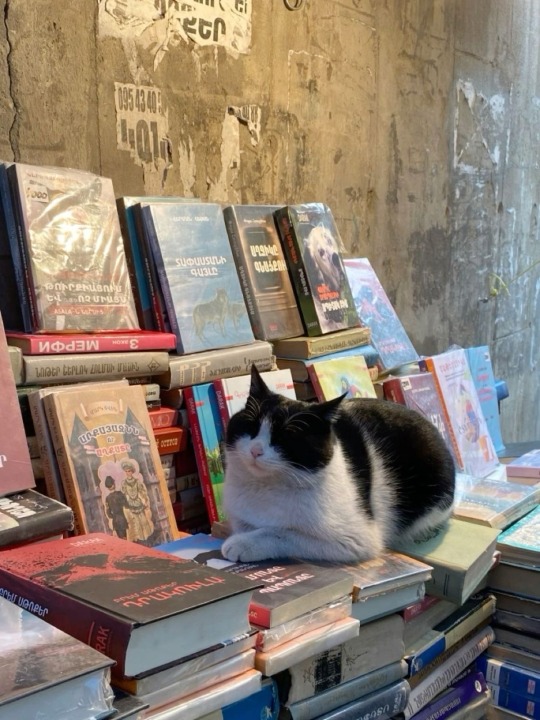
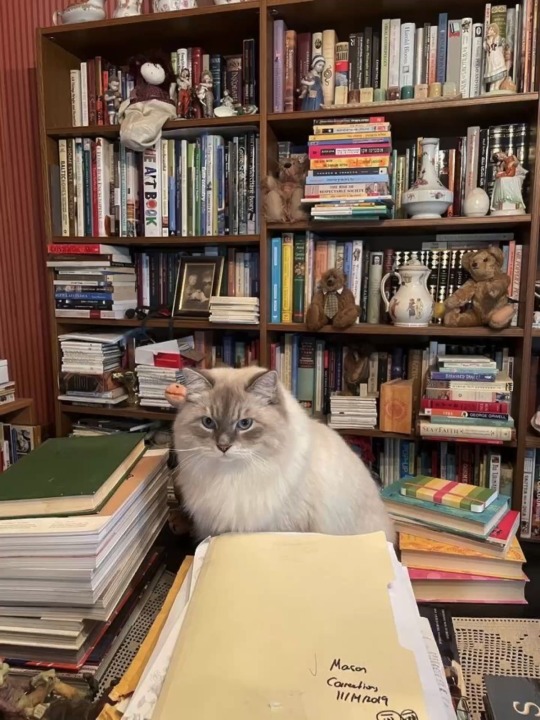
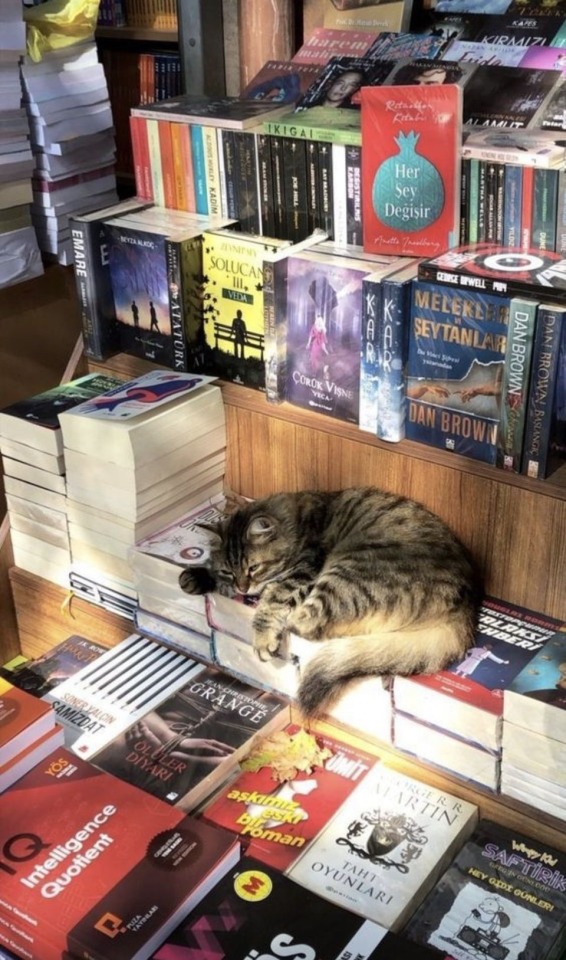
cats and libraries ۫ ꣑ৎ
#book#reading#booklr#books and reading#book review#bookworm#bookish#book photography#bibliophile#book blog#currently reading#book club#library#book lover#bookstore#books to read#book tumblr#book aesthetic#book community#books books books#bookshelves#bookshelf#bookstagram#books & libraries#books and literature#pinterest#source: pinterest#cats#cats of tumblr#catsoftheworld
11K notes
·
View notes
Text

love elizabeth s.
#original poem#original quote#love elizabeth s#love poem#love poetry#love letter#relationship quotes#relatable quotes#relationships#dark acadamia quotes#quotes#love quotes#sylvia plath#virginia woolf#my poem#poetry#poetry community#spilled thoughts#spilled ink#spilled poem#poem#writing#books#booklr#reading#book review#book lover#dark academia#dark academia quotes#short poem
17K notes
·
View notes
Text

#aesthetic#books books books#books#booklr#bookblr#books & libraries#book quote#book review#book quotes#light academia#dark acadamia quotes#poetry#writers and poets#quotes#dark academia#wlw post#art#classic#classics#classic books
21K notes
·
View notes
Text
I'm almost never angry but all the hurt I've bottled inside me make me look like I'm someone with rage.
#bibliophile#book blog#bookish#books#bookworm#literature#spilled thoughts#book review#poems on tumblr#spilled poetry#poets on tumblr#original poem#poetry#quoteoftheday#quotes
4K notes
·
View notes
Text

Dostoevsky, The Idiot
Caspar David Friedrich, Gartenterrasse, 1811
(Collage: instagram @emmalinatotes)
#quotes#spilled thoughts#love#reading#currently reading#bookish#booklr#book review#books#aesthetic#art#collage#artwork#fyodor dostoevsky#classic#love quotes#dark and beautiful#dark aesthetic#dark academia
6K notes
·
View notes
Text
25 Laws of power for women
Conceal your goals especially the ones that are appealing. Losing weight, reinventing yourself, marrying wealthy. Instead talk about your altruistic goals - to help children, invest in education, this will chase insecure people with vile intentions.
Do not give anyone your source of power: Was is a book that changed your life? a mentor? a movie? Never give up your secret to success. If forced to do say allude to God, the universe, the a random phenomenon
Use the patriarchy to your favor; we live in a world that is, only associate with men who have power, use that power for good.
Never appear too perfect but be selectively vulnerable when needed. Only share something that you will be comfortable saying. You might say “I forget my keys all the time,” “I don’t know how to perfectly park a car “. But never disclose something you are not comfortable with just because you are afraid of being perfect.
Maintain distance in relationships. Friends are the best and you need them. But if you feel that they are becoming too dependent, see them at your own will. But also the reverse could be the case. Your friend may keep a distance, and that is the way of life. You have got to move on from it.
Develop your own style that makes you unique, beautiful, and elegant. Avoid trying to fit in the crowd of people who claim to care less about their style yet have too many opinions about other women’s style
Avoid male friends at all cost, you will have male colleagues, male bosses, male acquaintances, business partners. Keep it that way. You do not want a Truman Capote divulging your secrets to the world. Do not keep a man who does not fit your standard.
You do not have to win at every game. Pick and choose what is best for you and leave room for others. And step down if you have attained that level of success, do not let the society do it for you.
Trust people but remember that we are all humans. So trust with discretion!
Confuse people with kindness; people are not always comfortable with beautiful and intelligent women. That power is too intimidating so confuse them by being genuinely generous, curious, kind, and passionate.
Keep your strong opinions to yourself.. if you support a movement, a way of life, do so silently.
We all have dirty laundry, wash them privately, don’t expose yourself. Remain silent when people try to attack you or shame you. Whatever is not confirmed is not true. You are the only one who knows all the truth about you.
Don’t attract pity or praise: People who pity you do not help you, in fact they might think that you are weak and could mock you at their annual gossipping meeting. And if you are doing things for the sake of praise you are wasting your time.
Choose yourself all the time; never put any one’s feelings above yours.
Trust your own intuition if you feel someone is being malicious towards you, giving you back handed compliments then you should let them go
Never speak bad of another woman. Do not lazy around gossipping. Keep your hands clean and your conscience clear.
Avoid women with low self esteem they will bring you down. For some reason they do not like seeing other women who are doing better than them
Be careful who you seek validation from. Not everyone needs to be pleased. If they are in no way capable of contributing to your life in the ways you prefer, then don’t ask them for their opinions or please them.
Do not compete with other women, if you do you are only putting them on a pedestal. You are making the the standard by which you measure your progress. If you do compete, begin digging your grave.
Do not give unsolicited advice, do not share the inner workings of your mind, If your mouth is very charitable you better start journaling.
Be well-rounded and interesting. It attracts people. It also keeps you busy because you are continually improving and learning. An idle mind is an easily subdued one.
Avoid women who want to live vicariously through you; they want to know who you know, shop where you shop, befriend who you befriend, wear what you wear.
Pay attention to the source of your discomfort; get rid of them. You tell them your dreams and they remind you of all your hindrances. They ask why are you dressed so fancy as though fancy isn’t subjective. They undermine you interests and goals. They will also be quick to bring you down because they are afraid of your potential.
Do not fear power or please power. When we see powerful people we try to hard to befriend them, to be close to them but you need to be comfortable without them. Don’t push yourself in the name of friendship, do not try too hard to be in their inner circle. Your independence of mind is the most important. Instead become a powerful woman, aloof to the presence of power but aware of its importance. Be an ingenious and intelligent and use your creativity to uplift yourself. When you do so it will be hard to ignore you. Even the powerful will become an ally.
Enjoy moments of solitude. Use that time to develop yourself, improve your body, learn new skills, create with your mind, read widely, become more elegant, then launch yourself.
Remember the most powerful women are the most intelligent. Inspired by Robert Greene's 48 Laws of Power. Use at your discretion.
#self improvement#self love#growth#mindfulness#self development#beauty#education#self care#classy#self help#power#new books#booklover#book review#book quotes#books#biography#self control#self discipline#self worth#students#smart#emotions#emotional intelligence#self growth#discipline#get motivated#life goals#gratitude#femininity journey
11K notes
·
View notes
Text
realistically there is no chance i will have time to read, imma still bring a book though
#book tumblr#bookstagram#readers#book lover#currently reading#book thoughts#book quotes#bookworm#book review#book blog#books#bookblr#reading
5K notes
·
View notes